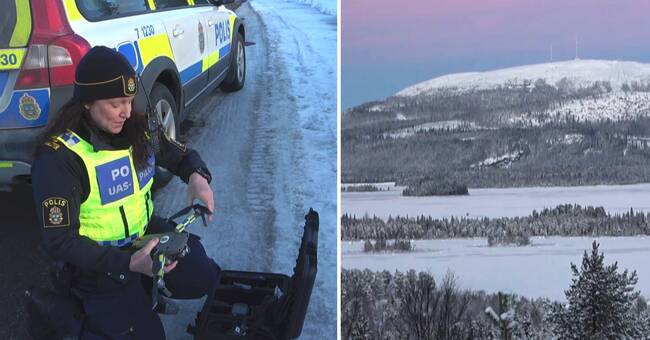Since 1 January 2020, the police no longer need to apply for a permit for surveillance with the help of UAS, which is popularly called a drone.
But the police must consider whether the purpose of the surveillance outweighs the public's interest in not being monitored.
There must be a risk of serious crime and the purpose of surveillance must be to prevent, deter or detect crime.
The researcher is hesitant about finding a hunting crime
In their decision on drone surveillance in Arjeplog, the police justify this by saying that there are problems with hunting crime in the area, but they also want to use the drones to detect snowmobiling in prohibited areas.
- The problem with large areas is the efficiency, will you find any hunting offenses in this way?
Is it worth risking privacy restrictions that it may entail?
says Ingrid Helmius, PhD in public law at Uppsala University.
Police: Minimal intrusion on the individual
In the decision, the police also believe that few people are in the area and that those who stay there are snowmobile riders and to some extent skiers.
They assess that the interest in monitoring the area outweighs the individual's interest in not being monitored.
“Camera surveillance with UAS often takes place from a high altitude to get an overview of an area.
This means that most people affected by the surveillance cannot be identified.
This significantly reduces the invasion of personal integrity. ", The police write in the decision.
Think the police should apply for a permit
Ingrid Helmius believes that it would have been better if the police instead applied for a permit for drone surveillance from another authority, just as it was before.
- Then the police must properly justify the surveillance and then have their backs free when two authorities have thought the same.
Then the police have a permit and know that you are doing the right thing.

